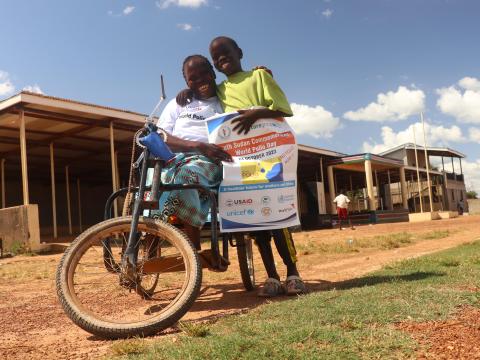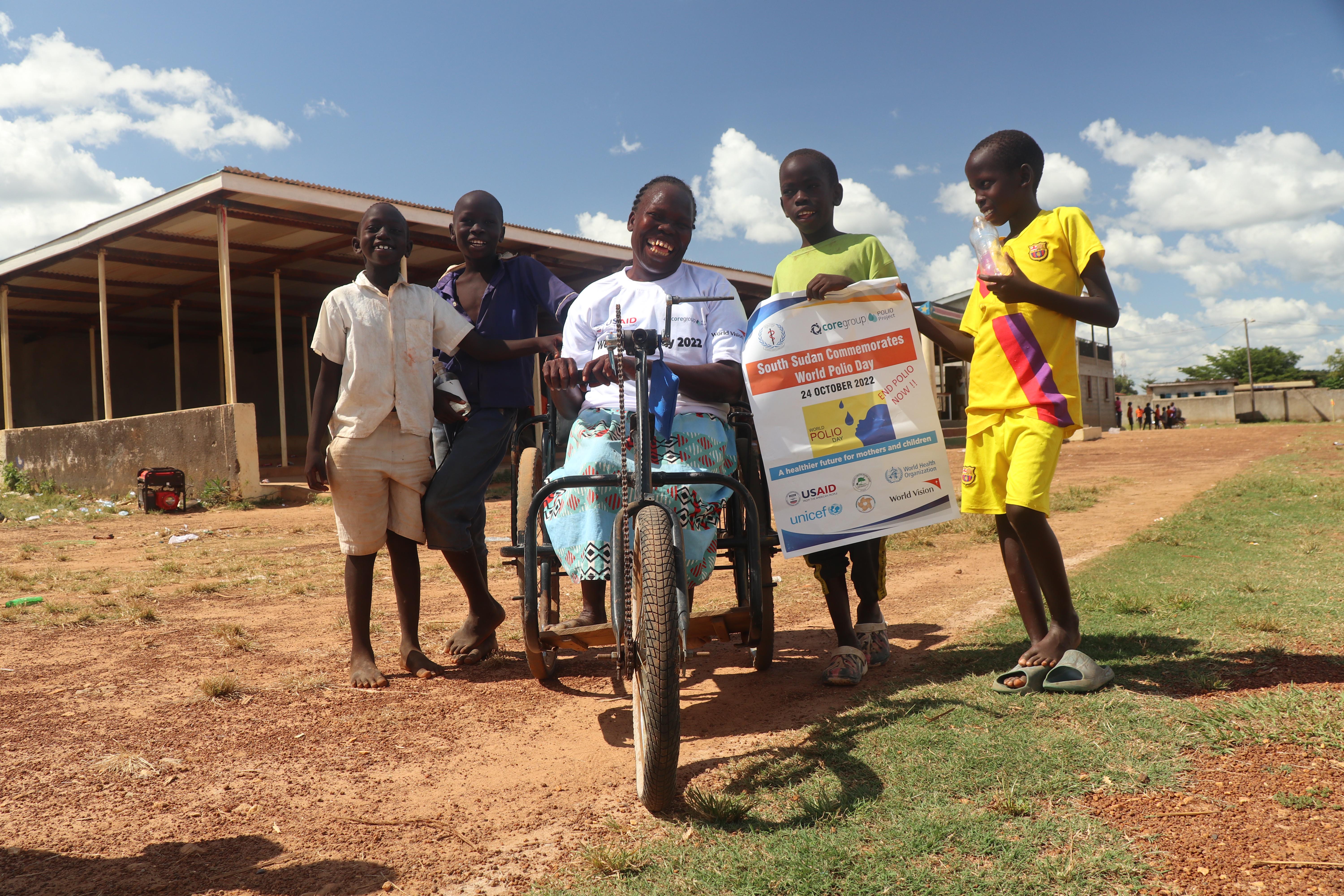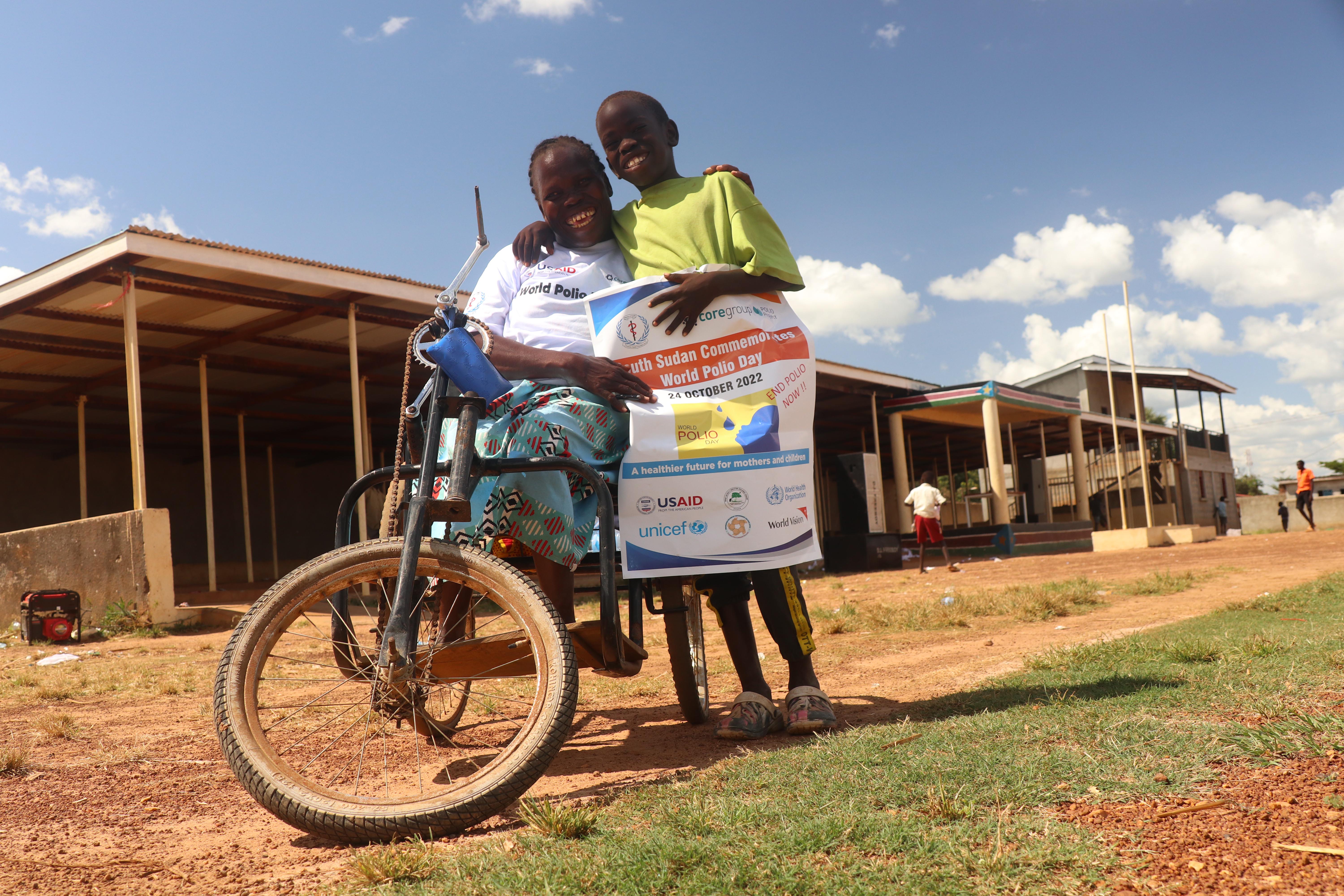Transforming a polio-free South Sudan: A polio survivor’s story of survival, hope, and resilience

Meet Akujo Mary, a 39-nine-year-old polio survivor, mother of three, and a widow from South Sudan. She proves that in spite of her disability, she can still pursue her dreams for her children and for herself. She’s not letting prejudice and discrimination define her and limit her potential, and she advocates for others to do the same.
"My mom said I was disabled, useless, and only a burden,” laments Akujo. Growing up, she experienced immense prejudice and discrimination from her community, including those from her family.
Akujo was born normal but developed weakness in her legs when she was eight months old. Then, shortly before her first birthday, doctors confirmed that she had contracted polio disease.
Before her birth, her family faced a tragedy. All her four older siblings died at birth, and this tormented her family.
"My birth was unexpected. I was not taken to the hospital for routine immunization, thinking I would not make it after a year," Akujo says.
Polio or poliomyelitis is a highly infectious viral disease that may cause paralysis. The World Health Organization says the virus predominantly affects children under five, and it is "transmitted by person-to-person spread mainly through the fecal-oral route or, less frequently, by a common vehicle (e.g., contaminated water or food) and multiplies in the intestine, from where it can invade the nervous system and cause paralysis." Polio is preventable by a polio vaccine.
"When my husband asked for my hand in marriage, not only was my family shocked but the community too," she shares.
Her marriage gave Akujo hope that she could live a better life. "I want to forget my childhood trauma." Eventually, life changed for the better for Akujo. She moved to Yei town with her husband, who runs a small business.
Soon enough, she conceived and started going to the hospital for her diphtheria toxoids and tetanus toxoid vaccines. "I birthed my children at the hospital, and they all completed their vaccinations. I wanted them to live a normal life free from social stigma."

Akujo believes that during her mother's time, mothers did not meet to discuss their health and their children's. As a result, communities lacked information and were not enlightened about vaccine-preventable diseases like polio, measles, yellow fever, etc.
She has seen the difference first-hand. "Now things are different because community workers come to our homes to vaccinate our children and educate us about the common sicknesses that affect our children and the importance of routine immunization during our mother-to-mother group meetings. We can also easily access the hospitals, discuss, and share our experiences with other mothers," she explains.

With support from the United States Agency for International Development (USAID), the Core Group Partners Project (CGPP) is supporting integrated community-based surveillance for acute flaccid paralysis (AFP), measles, yellow fever, Ebola virus disease, COVID-19, and adverse events following immunization. CGPP also supports the strengthening of immunization systems to sustain polio eradication in South Sudan through mother-to-mother group meetings to create demand for vaccination, tracing, tracking, and referral of immunization defaulters, unvaccinated newborns, pregnant and lactating mothers to the nearest vaccination sites for vaccination. The project also conducts quarterly periodic intensification of routine immunization.
In 2020, about a year after her husband passed away due to an illness, Akujo received a wheelchair from an organization, significantly improving her mobility. By selling vegetables and other food products, Akujo can provide for her children's needs and send them to school. She is also able to support her parents.
"I am saving money for my first child to do engineering at the university, and I'm saving to start another business," she says.

Since then, Akujo has become a staunch advocate for people with disabilities like her. She also believes that vaccines boost children's immunity from preventable diseases.
"Children with disabilities should be taken care of. They could be the future leaders of this country. Only God knows their fate," Akujo declares. She also calls on the government and other organizations to provide wheelchairs to people with physical mobility problems like herself and support their education "for them to realize their dreams."
Story and photos by Jemima Tumalu, World Vision South Sudan and Core Group Partners Project-South Sudan communications officer